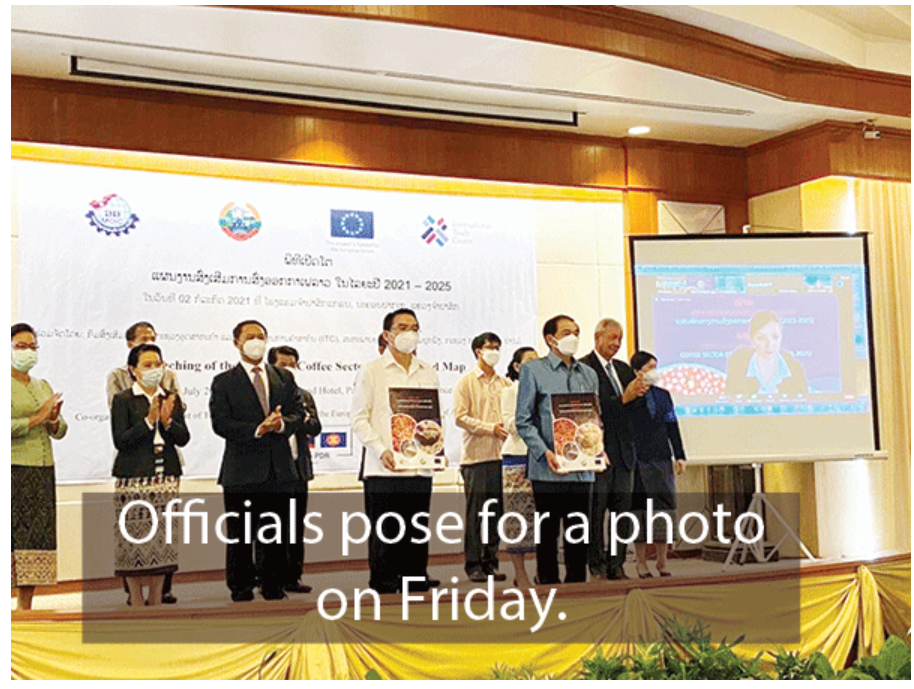Laos to increase coffee exports to EU
Laos will be able to export more coffee to the European Union (EU) states following the adoption of a new roadmap for exports.
The roadmap is aimed at increasing productivity and sustainability in production and processing, while simultaneously enhancing the capacity of Lao exporters, improving the domestic economy and securing better lives for rural citizens.
The Coffee Sector Export Roadmap offers guidance on strengthening quality in compliance with international standards, fostering dynamism in the sector, and connecting to global opportunities.
Small producers and firms can also benefit from sections of the roadmap on capacity building, organisation and trade information.
The coffee industry in Laos has great potential in terms of value, being the main cash crop for many small-scale farmers. Unsurprisingly, coffee is Laos’ third largest agricultural export. Coffee is currently exported to more than 26 countries in Asia, Europe and North America.
However, the coffee sector faces pressing challenges that limit efforts to engage in regional and global coffee trading. These constraints vary from reaching buyers in high-potential markets, improving systematic quality management, and increasing the productivity and sustainability of the sector. In addition, the Covid-19 pandemic is exacerbating existing problems and further complicating the future of Lao coffee farmers and enterprises.
The launch of the roadmap saw 80 participants meeting in person and online. The Ministry of Industry and Commerce, along with the Ministry of Agriculture and Forestry, led the roadmap’s development.
The International Trade Centre provided technical assistance as part of the Asean Regional Integration Support from the European Union (ARISE Plus), an EU-funded initiative focusing on promoting inclusive economic growth, climate change resilience, mitigating vulnerability and job creation in Laos.
The Coffee Sector Export Roadmap is also aligned with government priorities and ongoing initiatives in the sector, including support for the goals of the Lao Coffee Sector Development Strategy till 2025. Officials said it is crucial for the country to continue collaboration in implementing the roadmap.
During a discussion at the launch of the roadmap on Friday, participants shared ideas for the adoption of the roadmap.
“The coffee sector has become an important source of agricultural production and exports. Going forward, the sector has even more potential to contribute to economic growth and job creation. This roadmap provides a detailed action plan to leverage the strengths and addresses the constraints in domestic competitiveness,” said the Minister of Industry and Commerce, Khampheng Xaysompheng.
The Governor of Champassak province, Vilayvong Boudakham, said: “We see a big potential to export more coffee to the EU, especially organic and fair trade certified coffee. European consumers are ready to pay a higher price for their cup of coffee, if it is organic and respectful of the environment, and if it provides decent jobs and makes a positive social impact in communities.”
The Ambassador of the EU to Laos, Ms Ina Marčiulionytė, added, “This inclusive approach ensures that the roadmap is designed to reflect the sector’s goals, and outlines a realistic and effective path for achieving them.”
Source: https://www.vientianetimes.org.la/freeContent/FreeConten_Laos_to_129.php


 Thailand
Thailand




